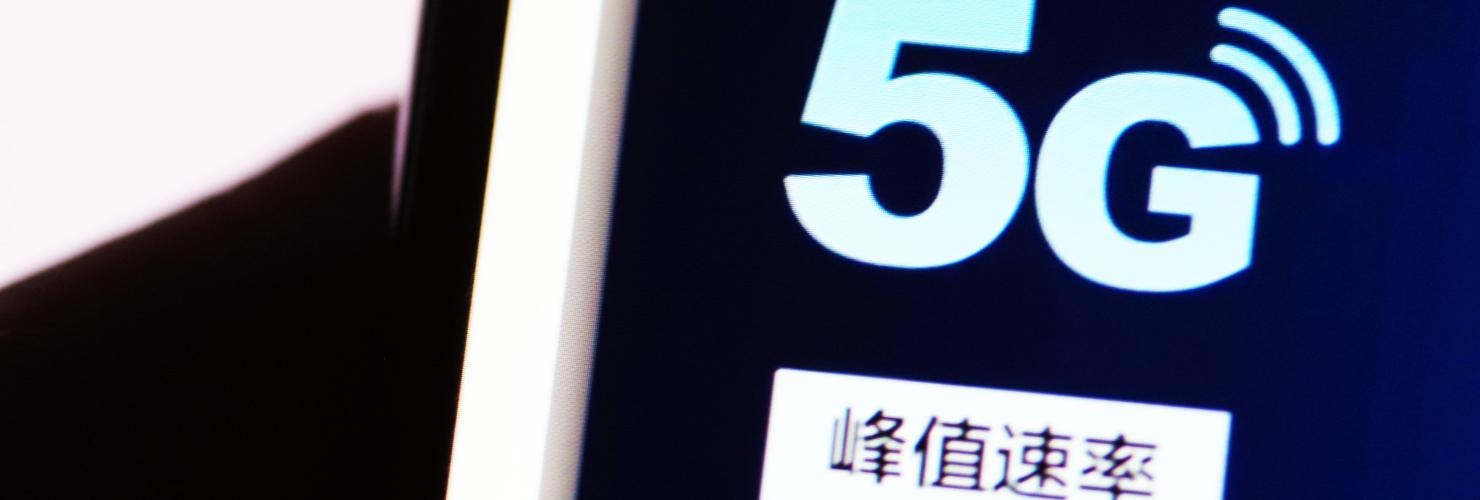

Europe’s backlash against Huawei has arrived
Resistance to Chinese technology is growing in Germany—and the ripple effects could reach across the continent.
The eastern German city of Leipzig was supposed to be the site where Angela Merkel crowned her fourth and final term as chancellor with a foreign-policy coup: a comprehensive investment agreement with China sealed in the presence of President Xi Jinping and fellow EU leaders. Instead it could be remembered as the place where Merkel’s China policy was thrown irreversibly off course by rebels in her party who refused to accept her plans to allow the Chinese telecommunications group Huawei to build Germany’s fifth-generation mobile network.
It is not clear yet whether the revolt—led by former Environment Minister Norbert Röttgen and supported by a cross-party grouping of lawmakers and cabinet officials as well as Germany’s intelligence agencies—will succeed. But there is a chance that it will. And if it does, we could look back on Leipzig as an inflection point in Germany’s—and Europe’s—relationship with China.
That is because an exclusion of Huawei in Germany could have a ripple effect across Europe, encouraging other countries to follow suit. Excluding Huawei would also upset the delicate balance Merkel has been trying to strike between Washington and Beijing, Germany’s two biggest trading partners outside of Europe. And it would probably trigger a forceful response from Beijing that could undermine Germany’s already faltering economy and hit some of its biggest firms, inexorably pushing the country, and Europe, down a more confrontational path with Beijing.
This is not how Merkel wants to end her 16-year reign as chancellor. After a year in which the European Union, encouraged by Germany, began to push back more aggressively against China, introducing a new mechanism to screen foreign investments and declaring Beijing a “systemic rival,” 2020 was supposed to be the year in which Berlin and Brussels reaped the fruits of their tougher stance. Under acute pressure from US President Donald Trump’s trade war, the reasoning went, Xi would be compelled to find common ground with Europe. It was a chance for the EU to wring concessions from China on a range of issues, including long-stalled negotiations on an investment agreement that would open up the Chinese market to European firms.
China's appetite for compromise seems limited
In recent months, Merkel signaled that she wanted to sign off on the investment deal at a summit in Leipzig next September attended by Xi and fellow European leaders. But she is not off to a good start. With a year to go until the U.S. election, it is Trump, not Xi, who is under pressure to deliver his promised trade deal with China. Beijing has hunkered down, refusing to budge on the big structural changes that Trump’s negotiators want most. This has shifted the dynamic with Europe. China’s appetite for compromise, which seemed ample last April when it bowed to EU pressure and made a series of reform pledges—on technology transfers, subsidies, trade rules and investments—suddenly seems limited. Officials in Brussels say Beijing is refusing to take meaningful steps in negotiations on the investment agreement.
If anything, Beijing has grown more defensive and combative with Europe in recent months amid new revelations about the mass detention of Muslims in China’s western region of Xinjiang and escalating protests in Hong Kong. In recent weeks, China has threatened Sweden with “consequences” for awarding a freedom of speech prize to Gui Minhai, a Chinese-born Swedish publisher imprisoned in China for printing books critical of the government. And a former employee of the British Consulate in Hong Kong has accused Chinese police of torture. Stories like this have added wind to the sails of those in Germany and elsewhere in Europe who are pressing for a ban of Huawei, a company they say is under the thumb of the Chinese Communist Party and an active enabler of its dystopian surveillance state, including in Xinjiang. (Huawei denies both.)
An increasingly charged debate over 5G in Germany
Relations between Berlin and Beijing have grown more tense in recent months. The Chinese leadership has still not forgiven German Foreign Minister Heiko Maas for meeting with the Hong Kong pro-democracy activist Joshua Wong in Berlin in September and has canceled a series of bilateral meetings. German officials say they are still waiting for China to propose a date for government consultations—Berlin and Beijing’s flagship annual meeting. The Germans want to hold this in the first quarter of next year, before an EU-China summit in Beijing, for which there is also no firm date. “Serious damage has been done to the bilateral relationship in many areas,” the Chinese ambassador to Germany said in a speech in Bonn this week.
The tensions are building against the backdrop of an increasingly charged German debate over 5G. After Peter Altmaier, Merkel’s economy minister, made a clumsy attempt to defend Huawei in the aftermath of the weekend rebellion—equating the risks of spying from China with those emanating from an “unreliable” United States—he came under attack from Trump’s envoy to Germany.
While Huawei critics argue that the risks of entrusting critical 5G infrastructure to a company that under Chinese law is obliged to collaborate with the country’s intelligence apparatus, Merkel and Altmaier have highlighted the economic risks of excluding it.
Germany’s carmakers and big industrial heavyweights, from Siemens to the chemicals group BASF, rely heavily on the Chinese market. They are desperate to prevent a backlash from China that seems certain to result from an exclusion of Huawei.
And they have good reason to worry: During a visit to Beijing in September, Merkel was warned by Chinese leaders that an exclusion of the Shenzhen-based group from the German 5G network would have serious consequences for bilateral economic ties, according to German officials. It would certainly doom the chances of clinching Merkel’s cherished investment agreement. And her Leipzig summit next year, meant to be the high point of Germany’s EU presidency and a crowning achievement before she leaves the political stage, would probably go up in smoke.
That could explain why, weeks after Merkel’s Beijing visit, German security criteria for 5G were watered down, with her approval, opening the door to Huawei. This softening triggered the rebellion last weekend, one of the biggest challenges to Merkel’s authority in recent years.
Growing resistance against Merkel's Huawei-friendly stance
The lead rebel Röttgen, who ran afoul of Merkel when he was environment minister and was sacked by her in 2012, is now head of the foreign affairs committee in the German parliament and a prominent critic of her government’s strategic inertia. Last month, he assembled a group of conservative allies to fight back against Merkel’s Huawei-friendly stance. Lawmakers from the Social Democrats, Merkel’s coalition partners, soon joined in, followed by Maas, the foreign minister. When Merkel’s hand-picked successor, Annegret Kramp-Karrenbauer, who is also defense minister and leader of the Christian Democratic Union, questioned the wisdom of including Chinese suppliers in early November, the battle was officially on.
At their party conference in Leipzig, Merkel’s Christian Democrats backed a motion that would give the lower house of parliament a veto on the security criteria for 5G suppliers like Huawei. The text ensures the criteria will include language that rules out suppliers that might be subject to the influence of a foreign country. “This is not about Huawei,” Röttgen said. “It’s about the fact that Huawei is a company that can’t escape the influence of the Communist Party leadership, whether it wants to or not.”
It may take months to know for sure whether his rebellion will succeed. But Huawei’s prospects in Germany, and in Europe, are looking shakier by the day.
This article was first published in "Foreign Policy" on November 27, 2019.
The views expressed in this article are those of the author and not necessarily reflect those of the Mercator Institute for China Studies.
